A Tale of Myths and Universal Truths
What if I told you the stories we learn in history and religion might have roots in the myths of one of the world’s oldest civilizations—Ancient Egypt?
The Egyptians were not just pyramid builders or skilled artists; they were incredible thinkers who tried to understand the mysteries of the universe through stories called myths.
Throughout history, mythology has provided a framework for understanding the world, shaping our beliefs and behaviors. Among the most compelling mythologies are those of Ancient Egypt, which offer rich stories of creation, morality, and cosmic order.
Interestingly, these narratives share profound parallels with the Hebrew Genesis, suggesting a tapestry of interconnected ideas that transcend cultures. Let’s explore how Ancient Egyptian wisdom resonates with the Genesis story and its universal themes.
These myths were full of symbolism, representing forces of nature, human emotions, and cosmic struggles. Over thousands of years, this wisdom spread far and wide, influencing other cultures.
One of the most fascinating connections can be found in the Hebrew Bible’s Genesis story. Let’s explore how the Egyptians shaped ideas about creation, life, and even morality.
What Is Mythology, and Why Is It Important?
Before science existed to explain things like why the sun rises or what causes thunder, humans relied on imagination. Mythology is like the first version of science and philosophy wrapped up in colorful stories.
For example, when Egyptians wondered about the wind’s invisible strength, they didn’t call it “air pressure.” Instead, they said, “That’s Shu, the god of air, keeping the sky high above us.”
But myths were more than just explanations. They also taught lessons about life, nature, and relationships. For the Egyptians, myths weren’t just stories—they were the foundation of how they viewed the world. Through their myths, they passed down knowledge from one generation to the next.
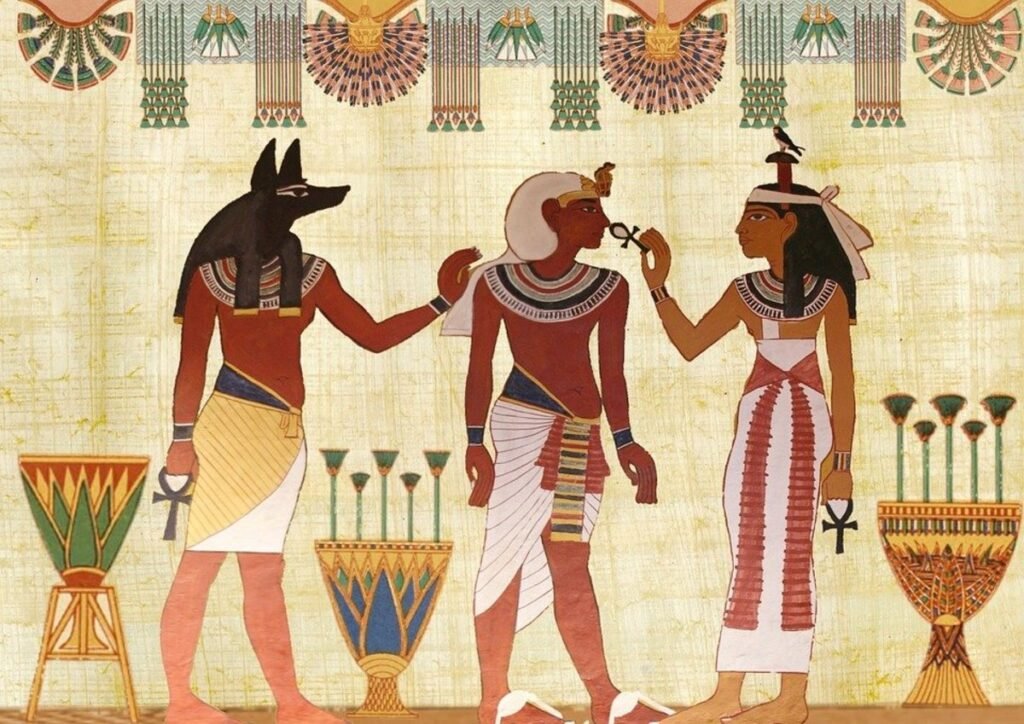
Why Should We Care About These Myths Today?
Even though Egyptian myths were created thousands of years ago, they are still relevant. They shaped other cultures, including Greek, Roman, and Hebrew traditions. Ancient Egyptian stories gave rise to many of the ideas in Genesis, such as the idea of a divine order, the fight between good and evil, and the creation of the world.
The Origins of the Universe: From Chaos to Order
In both Egyptian mythology and the Hebrew Genesis, creation begins in chaos. The Egyptians imagined a vast, formless abyss called Nun, a watery expanse containing infinite potential. Out of Nun emerged the first land, the Benben, on which the god Atum stood to initiate creation.
Similarly, Genesis describes the Earth as “formless and empty,” with “darkness over the surface of the deep.” This watery void represents a state of unmanifested potential that God transforms through the act of creation.
Egyptian Influence on Hebrew Genesis
The Hebrew Bible’s Book of Genesis contains two creation accounts (Chapters 1-2) that have been compared to ancient Egyptian creation myths. Scholars have identified similarities and parallels between the two traditions.
Similarities:
- Cosmogony: Both Egyptian and Hebrew creation accounts describe the creation of the world from a primordial chaos. In Genesis 1:2, the “earth was without form and void” (tohu wabohu), echoing the Egyptian concept of the universe emerging from a state of disorder.
- Divine Creation: Both traditions feature a divine creator god. In Genesis, Elohim (the Hebrew generic word for “god”) creates the heavens and earth, while in Egyptian mythology, the sun god Atum or the god Khnum are credited with creation.
- Creation of Humans: Both accounts describe the creation of humans. In Genesis 2:7, God forms Adam from dust, while in Egyptian mythology, the god Khnum creates humans from clay or mud.
Differences:
- Monotheism: The Hebrew Bible presents a single, all-powerful God (Yahweh), whereas Egyptian mythology features a pantheon of gods and goddesses.
- Creation Methods: In Genesis, God creates through spoken words (Genesis 1:3-31) and direct action (Genesis 2:4-25), whereas Egyptian mythology often depicts creation through the actions of multiple gods and goddesses.
- Purpose of Creation: Unlike Egyptian mythology, which is about how the world is controlled by natural cycles and the balance of opposing forces, the Hebrew story is about how God made people in his own image (Genesis 1:26–27) and how God made a promise to live with people forever.
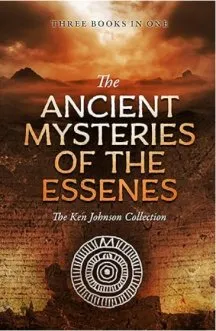
Influence of Egyptian Mythology on Hebrew Bible
Scholars have identified several parallels between Egyptian mythology and the Hebrew Bible, including:
- Yahuda’s Similarities: In the 1930s, scholar Benno Yahuda identified similarities between Genesis 1-2 and ancient Egyptian texts, including the creation of humanity and the use of symbolic language.
- Gordon’s Parallels: In 1982, Cyrus Gordon drew parallels between the Egyptian creation myth of Khnum and Genesis 2:4-25, highlighting the shared themes of creation and humanity.
- Hoffmeier’s Cosmology: In 1983, James Hoffmeier examined the similarities between Genesis 1-2 and ancient Egyptian cosmology, noting the shared concepts of creation, chaos, and the role of the creator-god.
While the Hebrew Bible’s Genesis account is distinct from Egyptian mythology, it is clear that there are similarities and parallels between the two. The Hebrew account’s unique themes and tone, however, set it apart from Egyptian mythology.
The Hebrew account differs from other traditions in its emphasis on monotheism, covenant, and rejection of Egyptian polytheism, despite sharing comparable themes and symbols.
This complex interplay of influences and polemics reflects the dynamic cultural exchange and theological debate between ancient Israel and Egypt.
Water as a Symbol of Potential
- Egyptian Mythology: Water signifies the primordial chaos from which life emerges.
- Genesis: Water acts as the foundation of creation, divided to form the heavens and the Earth.
Both traditions emphasize a shift from disorder to structure, underscoring humanity’s deep need to impose meaning on the unknown.
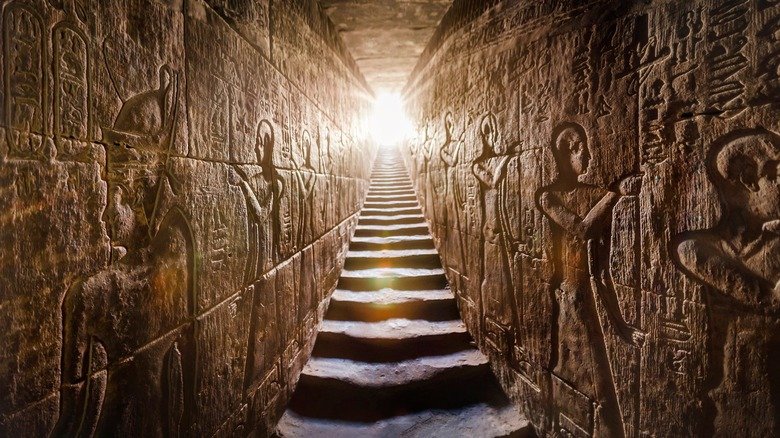
The Power of Light
For the Egyptians, light was the ultimate symbol of life and order. Every morning, the sun god Ra was born, bringing light to the world. But this wasn’t an easy task—Ra had to battle the serpent Apophis, a creature of chaos and darkness, every single night.
In Genesis, light also plays a starring role. It’s the first thing God creates to push back the darkness, symbolizing the triumph of good over evil. These stories remind us how important light has always been to human survival and imagination.
Animals and Symbols in Myths
If you’ve ever seen pictures of Egyptian gods, you might notice something strange: many of them have animal heads! For example, Thoth, the god of wisdom, has the head of an ibis bird. Anubis, the god of the afterlife, has the head of a jackal. Why did Egyptians choose animals to represent their gods?
Animals were everywhere in Egypt, and each had qualities the Egyptians admired or feared. They used these animals as symbols to make their gods relatable and memorable. Here are some examples:
- The Ibis (Thoth): Known for its careful, deliberate movements, the ibis symbolized intelligence and thoughtfulness. Thoth, the god of writing and knowledge, was often depicted with an ibis head.
- The Jackal (Anubis): Jackals were often seen near burial sites, so they became symbols of protection and guidance for the dead. Anubis, the guide of souls, was a natural choice to have a jackal’s head.
- The Scarab Beetle (Khepri): Scarabs roll balls of dung, which the Egyptians saw as a symbol of rebirth. Khepri, the god of sunrise and renewal, was associated with this hardworking insect.
These symbols helped people connect with the divine in everyday life, making the gods feel close and accessible.
The Influence on Genesis
One of the clearest signs of Egyptian influence is the way Genesis describes creation. Both cultures emphasize the importance of water, light, and order. But the connections don’t stop there.
Good vs. Evil
In Egyptian mythology, Ra’s daily battle with Apophis is a classic good-versus-evil story. This struggle wasn’t just about defeating darkness; it was about maintaining balance, a concept Egyptians called *ma’at*. Without *ma’at*, the world would collapse into chaos.
Similarly, Genesis shows a battle between good and evil. After God creates a perfect world, Adam and Eve’s actions introduce sin, leading to a constant struggle between right and wrong.
The Role of Nature
Both Egyptian myths and Genesis highlight humanity’s deep connection to nature. The Egyptians worshiped the Nile River as a giver of life, just as Genesis places the Garden of Eden beside flowing rivers. Both stories remind us of nature’s power and our responsibility to respect it.
Moral Parallels and Universal Values
Shared ethical themes connect the two traditions:
- Justice and Truth: Both Ma’at and the Ten Commandments prioritize these values as foundations of a just society.
- Compassion and Kindness: In both traditions, moral behavior aligns with divine will, promoting harmony within the community.
- Consequences of Choices: The Egyptian Weighing of the Heart ceremony, where a person’s heart is weighed against the feather of Ma’at, parallels the biblical emphasis on judgment based on one’s deeds.
Order and Chaos: The Balance of Opposing Forces
The concept of Ma’at, central to Egyptian philosophy, represents truth, balance, and cosmic order. Ra’s nightly battle with Apophis symbolizes the perpetual struggle to maintain harmony. This battle mirrors the tension in Genesis between obedience to divine order and the chaos introduced by sin, as seen in the story of Adam and Eve.
Ma’at and Ethical Living
The Egyptians believed that living in accordance with Ma’at—through truthfulness, justice, and compassion—ensured harmony in both the individual’s life and the universe. This resonates with the moral imperatives in the Ten Commandments, which emphasize honesty, respect, and community values.
Moral Lessons from Egyptian Myths
Egyptian myths didn’t just explain the world; they also taught people how to live. Take the concept of *ma’at* again—it wasn’t just about cosmic balance. It was also about personal behavior. Egyptians believed that by being honest, kind, and respectful, they contributed to the universe’s harmony.
The Hebrew Bible carries similar messages. The Ten Commandments emphasize honesty, kindness, and respect, echoing the moral values Egyptians cherished. These shared lessons show how cultures influence one another, creating a shared human story.
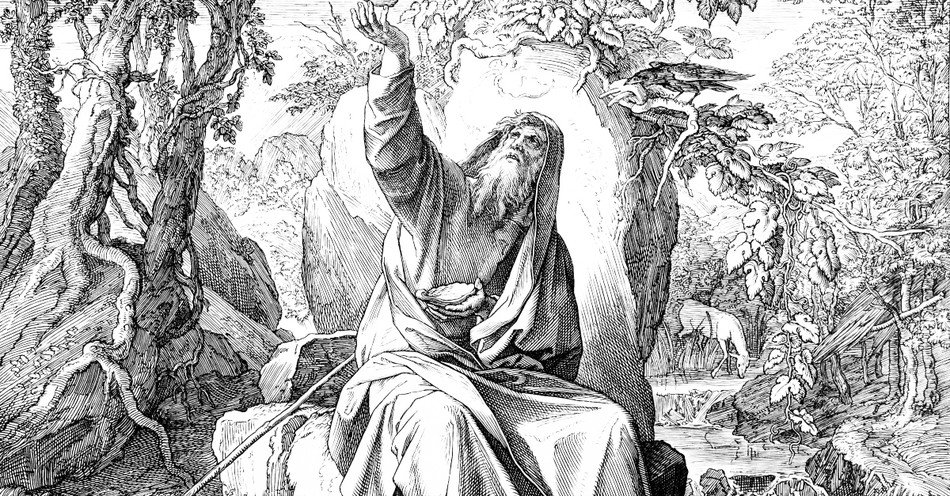
Modern Relevance of Ancient Wisdom
The principles of Ma’at—truth, justice, balance, and harmony—are as relevant today as they were millennia ago. They remind us of the interconnectedness of our actions and the importance of striving for balance in our personal lives and the world.
Applying Ma’at Today
- Truthfulness: Cultivate honesty in relationships and decision-making.
- Justice: Advocate for fairness and equity in your community.
- Balance: Prioritize harmony between work, family, and personal growth.
- Harmony: Engage in acts of kindness and compassion, contributing to a more peaceful society.
Nature and Spirituality
Both cultures imbue nature with profound spiritual meaning:
- The Egyptians cherished the Nile as the lifeline of agriculture and civilization. Similarly, four rivers replenish Eden, representing abundance and divine supply according to Genesis.
- In both traditions, water is not merely a physical necessity but a sacred element integral to life and spirituality.
The Legacy of Egyptian Myths
Egyptian mythology has left its fingerprints all over history. You can see its influence in Greek myths, Roman gods, and even fairy tales. For example:
- The Greek god Hermes shares traits with Thoth, the Egyptian god of wisdom and communication.
- The Roman goddess Venus echoes Hathor, the Egyptian goddess of love and beauty.
But perhaps the most enduring influence is on the way we tell stories. Egyptian myths taught people to think in symbols and look for deeper meanings in everyday life.
Cultural Interactions and Mutual Influences
Given the proximity of Egypt to ancient Canaan, where the Hebrew people lived, cultural exchanges were inevitable. Trade, migration, and conquest facilitated the sharing of stories, symbols, and ideas.
While it is challenging to determine direct influence, the similarities between Egyptian mythology and the Genesis narrative suggest a shared pool of human questions and answers about existence, morality, and the divine.
Examples of Influence
- Dying and Rising Gods: Osiris’s death and resurrection as a symbol of life, death, and rebirth echoes later theological concepts, including the resurrection of Christ in Christianity.
- Mother and Child Imagery: Isis nursing Horus evokes maternal protection, akin to depictions of Mary and baby Jesus in Christian art.
Why Does This Matter Today?
Learning about Egyptian myths helps us understand how cultures grow and change over time. It’s like tracing the roots of a giant tree—every branch and leaf connects back to a common source.
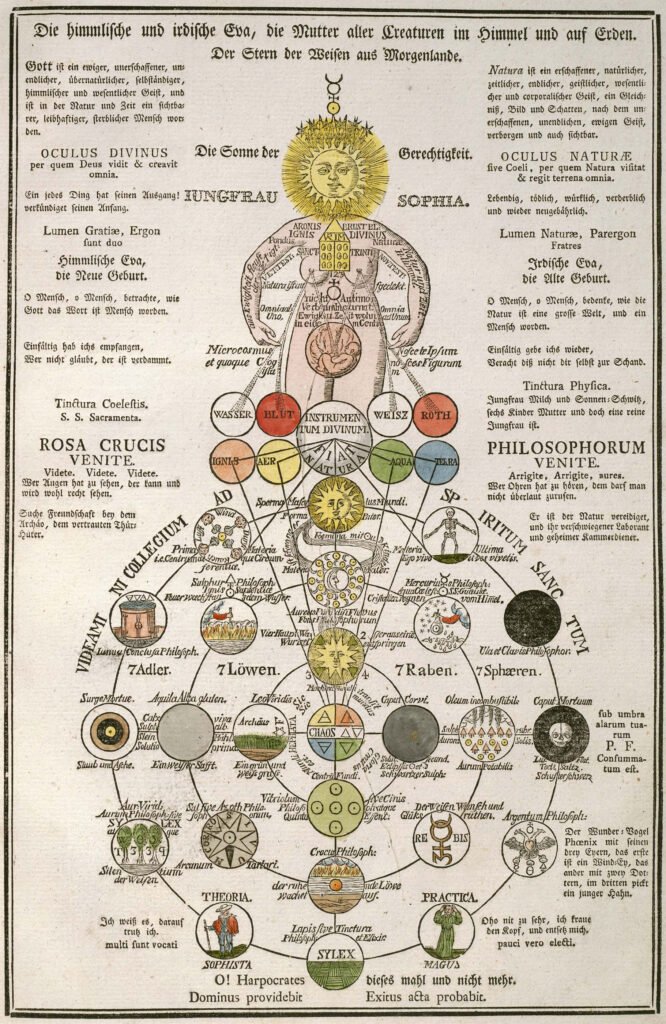
Fun Ways to Explore Egyptian Myths
Want to dive deeper into the fascinating world of Egyptian mythology? Here are some fun activities:
1. Draw a Mythical Scene: Choose your favorite Egyptian myth and illustrate it. What would Ra’s battle with Apophis look like?
2. Create Your Own Myth: Imagine you’re an ancient Egyptian. How would you explain something like rain or fire?
3. Visit a Museum (Virtually or in Person): Look for Egyptian artifacts, like statues of gods or hieroglyphics. Each piece tells a story!
4. Compare Myths: Read a creation story from another culture, like the Greek or Norse myths. How are they similar to Egyptian tales?
Universal Themes in Mythology
Ancient Egyptian mythology and the Hebrew Genesis provide profound insights into common human concerns such as the origins of the universe, the nature of good and evil, and the moral values that underpin society.
Examining these narratives side by side reveals universal truths that transcend time and culture, illustrating our collective search for meaning.
As we continue to explore these stories, let us draw from their wisdom to navigate the complexities of our modern lives, fostering balance, compassion, and a deeper understanding of the world around us.
Sources:
- https://en.wikipedia.org/wiki/Genesis_creation_narrative
- https://bible.org/article/genesis-1-2-light-ancient-egyptian-creation-myths
- https://en.wikipedia.org/wiki/Book_of_Genesis
- https://www.sparknotes.com/lit/oldtestament/section1/
- https://en.wikipedia.org/wiki/Biblical_Egypt
- https://www.myjewishlearning.com/article/genesis-11-23-the-story-of-creation/
- https://classroom.synonym.com/the-similarities-between-judaism-early-egyptian-religion-12087874.html
- https://bible.org/article/genesis-1-2-light-ancient-egyptian-creation-myths